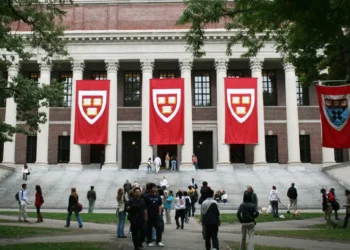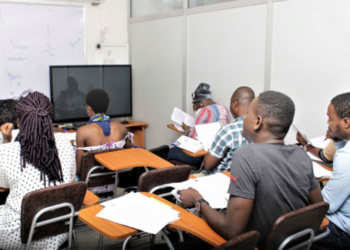The Massachusetts Institute of Technology and Harvard University have sued President Donald Trump over a new policy that restricts foreign students, whose courseworks would be taught online, from entering/remaining in the USA.
According to the Wall Street Journal, the suit was filed today in the US District Court in Boston, Massachusetts. The suit alleges that the modifications that were made to the Student and Exchange Visitor Programme (SEVP) by the US Immigration and Customs Enforcement (ICE), came without warning.
READ ALSO: America announces modified guidelines for foreign students returning to its schools
The impromptu nature of the modifications, therefore, has left Harvard and MIT with no choice but to think it was “arbitrary and capricious”.
Recall that ICE had on Monday announced the eagerly awaited modifications ahead of foreign students’ return to US campuses for the autumn semester.
READ ALSO: Rethinking Inclusive Education: COVID-19 realities, post implications on education
One aspect of the modified guidelines, which has thus far proven to be quite controversial, requires foreign students to remain in their home countries if their courses are going be taught online. Foreign students who are already in the US were also directed to leave the country if their courses are online-based.
Get Economic Research Data From Nairametrics on Nairalytics
Harvard University is one of the ivy league American schools that recently announced plans to teach their courseworks entirely online, due to the COVID-19 pandemic. Harvard’s plan is such that students living on campus and off campus would attend classes online. However, the reviewed SEVP guideline by ICE has disrupted that plan.
CNN International quoted Harvard University President, Larry Bacow, to have said:
“The order came down without notice—its cruelty surpassed only by its recklessness. It appears that it was designed purposefully to place pressure on colleges and universities to open their on-campus classrooms for in-person instruction this fall, without regard to concerns for the health and safety of students, instructors, and others.
“This comes at a time when the United States has been setting daily records for the number of new infections, with more than 300,000 new cases reported since July 1.”
Similarly, MIT’s president L. Rafael Reif, issued a strongly-worded statement condemning the development. According to him, ICE’s modified SEVP guidelines “disrupts our international students’ lives and jeopardizes their academic and research pursuits.”
He went further to write that MIT’s “international students now have many questions – about their visas, their health, their families and their ability to continue working toward an MIT degree. Unspoken, but unmistakable, is one more question: Am I welcome? At MIT, the answer, unequivocally, is yes.”
Note that this story matters because of its international ramifications. Harvard University alone has about 5,000 foreign students, some of whom are Nigerians. The revised guidelines by the US Immigration and Customs Enforcement is bound to disrupt these students autumn semester unless the US Government rescinds the directive.























